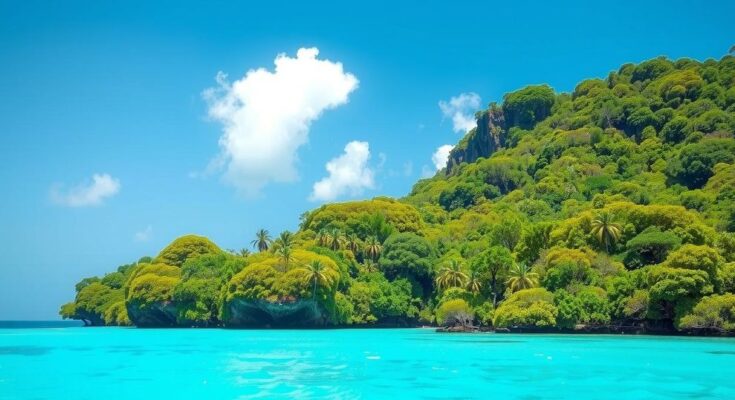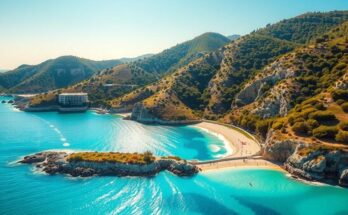The U.S. has welcomed a deal between Britain and Mauritius for the Chagos Islands, allowing the islands to return to Mauritius while maintaining military access to Diego Garcia. Mauritius Prime Minister Navin Ramgoolam hailed it as a significant victory, completing decolonization begun in 1968. The deal, carrying significant financial implications, faced legal challenges but ultimately proceeded.
The United States has expressed its approval regarding the recent agreement between Britain and Mauritius concerning the Chagos Islands. This deal permits the return of these islands to Mauritius while allowing the UK to maintain its military base on Diego Garcia, which is jointly operated with U.S. forces. Secretary of State Marco Rubio praised the agreement as “historic,” noting its importance for both regional and global security as it ensures the ongoing functionality of this strategic military facility.
Prime Minister of Mauritius, Navin Ramgoolam, voiced his support for the deal, describing it as a “great victory” for the Mauritian nation. He highlighted its significance in the context of decolonization, stating it completes a journey that began with the country’s independence in 1968. The announcement followed a signature from British PM Keir Starmer, who confirmed the contentious deal after receiving judicial approval.
Starmer stated that the agreement, touted as essential to safeguard British and American military interests, was necessary for the longevity of the military base. Britain will reportedly pay Mauritius £101 million ($136 million) annually for a 99-year lease of the facility, leading to a projected total cost of about £3.4 billion over the duration of the agreement, considering inflation.
The signing of the deal was met with controversy. Earlier in the day, a High Court hearing involving two Chagossian women led to a last-minute injunction which threatened to disrupt the signing. The court later lifted the injunction, citing a strong case that delaying the agreement would harm UK national and public interests.
Starmer defended the urgency of the agreement, emphasizing the international legal questions surrounding Britain’s ownership and asserting that partnering with Mauritius was necessary to sustain military operations. However, outside the court, one of the plaintiffs, Bertrice Pompe, lamented the situation, expressing the sentiment that Chagossians do not desire to surrender their rights to Mauritius.
The history of the Chagos Islands is long and complex. They were separated from Mauritius over 50 years ago, leading to the eviction of indigenous people to facilitate the establishment of the U.S. military base. This action, reminiscent of colonial practices, has been contested ever since, with the United Nations in 2019 demanding Britain return the islands.
The Chagos Islands, located in the Indian Ocean, were colonized by France before being ceded to Britain in 1814. Once merged with Mauritius in the early 1900s, the territory was utilized for coconut cultivation through forced labor, primarily from Africa and India. In 1965, Britain paid a substantial sum for the islands, severing them from Mauritius even as the latter pursued independence.
Over the years, the eviction of around 2,000 Chagossians transformed their lives drastically. After still losing their lands, many ended up in Mauritius or the Seychelles. Legal attempts for restitution and repatriation have faced numerous legal and political hurdles, with successive British governments denying resettlement while basing their arguments on defense and security concerns.
The U.S. military base at Diego Garcia has been vital for operations in various conflicts, operational since the Cold War, and has undergone significant expansions since its creation in the 1960s. Recently, it has been a critical site for U.S. defense strategies in the Middle East and Asia. Yet, the story of the Chagossians and their ongoing struggle for recognition continues to be a poignant chapter in the ongoing narrative of colonialism and its legacies.
In conclusion, the agreement between Britain and Mauritius regarding the Chagos Islands marks a significant shift in colonial legacies, welcomed by both countries while sparking controversy among the native Chagossians. As the U.S. military’s interests remain tied to this agreement, the Chagossians continue to grapple with their historical grievances. This complex backdrop serves as an ongoing reminder of the intertwined fates of nations, colonial histories, and the rights of indigenous populations.
Original Source: www.eurasiantimes.com




